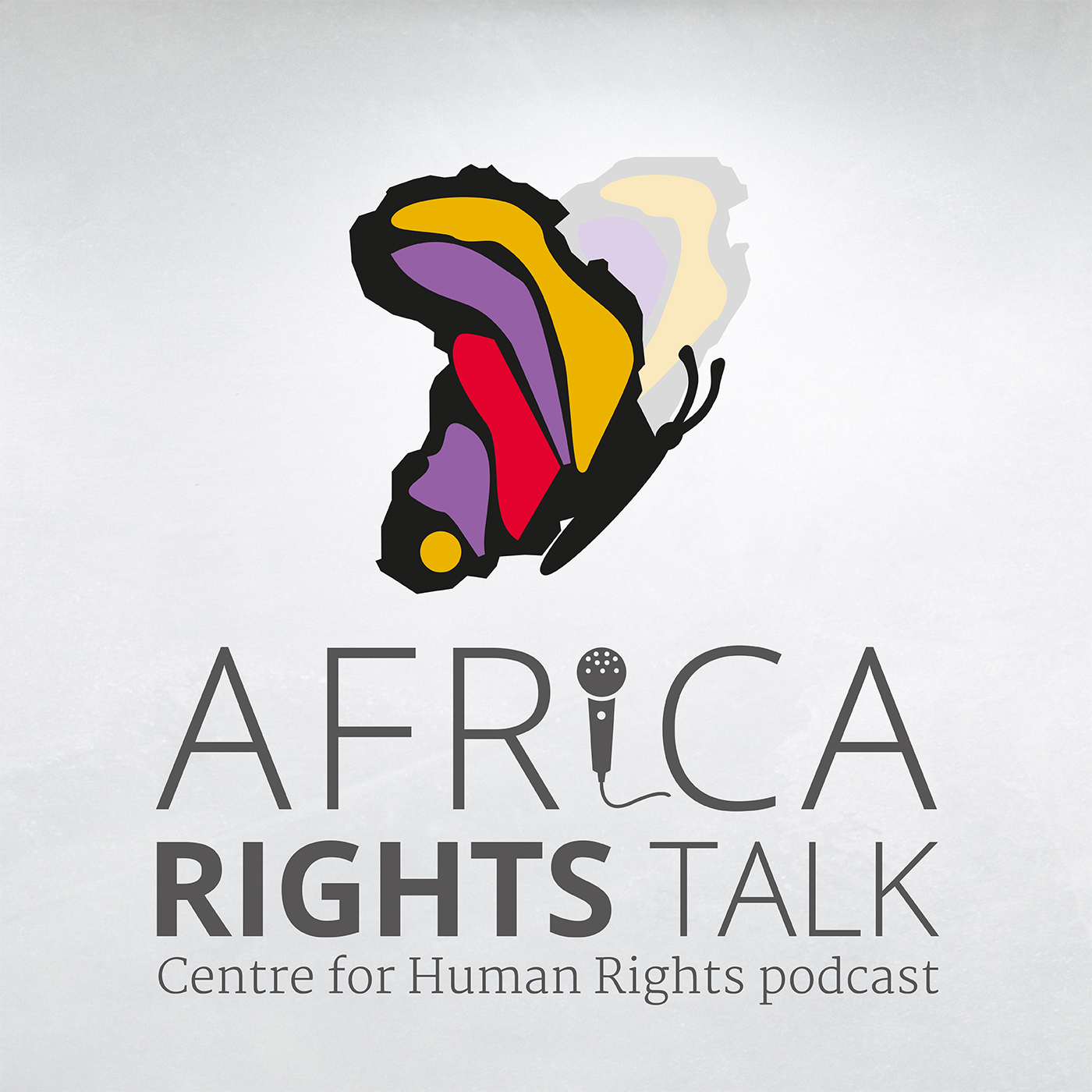Episodes
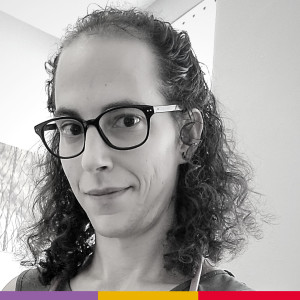
Tuesday May 12, 2020
S2 E5: The need for inclusive spaces for trans women in Africa
Tuesday May 12, 2020
Tuesday May 12, 2020
In conversation with Dr Anastacia Tomson
“I hate so much that we need to define the trans experience through the lenses of trauma, suffering and dysphoria. I really wish we could move forward towards a model where we define the trans experience by wellness and euphoria”.
In this episode, Dr Anastacia Tomson, a transgender woman, and Thiruna Naidoo from the Centre for Human Rights, take the listeners on a journey of analysing the lived experiences of transgender women in South Africa. This episode emphasises the need for inclusive spaces for the transgender community. Dr Tomson talks about the challenges of accessing healthcare and the gatekeeping of identities faced by the trans community in South Africa. She also reflects on the impact of the Protocol to the African Charter on Human and People’s Rights on the rights of Women in Africa, (The Maputo Protocol), in observing and protecting the rights of marginalised women such as transwomen in Africa. In her reflections, she shows the potential the Maputo Protocol has as a tool to ensure that the rights of transgender women are protected. To this effect, the Centre for Human Rights in partnership with Centre for Sexualities AIDS and Gender (CSA&G) worked on the TransMaputo Project to ignite discussions around what the Maputo Protocol can do to ensure the rights of transgender women in Africa are protected.
Anastacia Tomson is a medical doctor, author, and activist, with a focus on queer and transgender rights. She completed her medical degree at the University of Pretoria in 2009, and has years of experience as a clinician in the public and private sector. Dr Tomson conducts workshops and seminars that provide sensitisation and competency training on LGBTQI+ issues, targeting healthcare workers and mainstream society. She also produces training materials covering transgender health. Anastacia is founder of the Professional Alliance Combating Transphobia, PACT and a Sexual and Reproductive Justice Coalition steering committee member. Her autobiography, “Always Anastacia: A Transgender Life in South Africa”, is a compelling memoir that details some of the defining moments in her life, through the lens of her transition. It’s a candid and honest look into the life of a South African trans woman, and the unique challenges and struggles she faces in claiming her own identity, and living her truth in an often-unforgiving world.
This is a special episode being published in light of The International Day Against Homophobia, Biphobia and Transphobia (IDAHOBIT), a yearly event held on 17 May. The aim of IDAHOBIT is to raise awareness on violence, discrimination, repression, and health challenges that detract from the progress and wellbeing of the LGBTIQ+ community all over the world. IDAHOBIT provides an opportunity for the LGBTIQ+ community to come together and celebrate their unique identities. Transgender people and trans women in particular, face a unique set of intersecting oppressions through the normative regulation of sexuality, gender roles, expression and cultural identity.
This conversation was recorded on 26 February 2020.
Edited by Tatenda Musinahama.
Music: Inner Peace by Mike Chino https://soundcloud.com/mike-chinoCreative Commons — Attribution-ShareAlike 3.0 Unported — CC BY-SA 3.0 http://creativecommons.org/licenses/b...Music promoted by Audio Library https://youtu.be/0nI6qJeqFcc
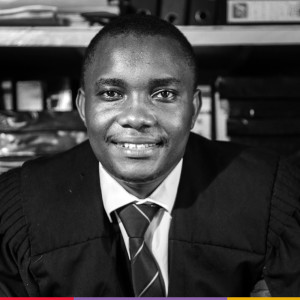
Tuesday Apr 28, 2020
Tuesday Apr 28, 2020
In conversation with Dr Adrian Jjuuko
In this episode, Dr Adrian Jjuuko is in conversation with Thiruna Naidoo from the Centre for Human Rights, as they discuss issues affecting the rights of LGBTIQ+ persons in Africa. This conversation touches on violence against the LGBTIQ+ community and makes a comparison between the legal climate of Uganda and other African countries in relation to legislation affecting sexual minorities. Dr Jjuuko gives insightful perspectives on the impact of litigation and influence of religious views in advocating for sexual minority rights. Rounding off the conversation, recommendations are provided for social activists in order to promote and advance the rights of LGBTIQ+ persons.
Dr Adrian Jjuuko is a Ugandan human rights lawyer, researcher and consultant. He is the founder and Executive Director of the Human Rights Awareness and Promotion Forum (HRAPF). This organisation operates the first and only specialised legal aid clinic for marginalised persons in Uganda, and has been instrumental in carrying out advocacy and strategic litigation against laws that violate or threaten the rights of LGBTIQ+ persons and other minorities in Uganda. He holds a doctorate from the University of Pretoria, and his research thesis is titled ‘Beyond court victories: Using strategic litigation to stimulate social change in favour of lesbian, gay, and bisexual persons in Common Law Africa.’ He also holds a Master’s in Human Rights and Democratisation in Africa from the University of Pretoria, an LLB from Makerere University Kampala, Uganda, and a postgraduate Diploma in Legal Practice from the Law Development Centre, Kampala. Dr Jjuuko has written and edited several articles such as Protecting the human rights of sexual minorities in contemporary Africa.
This conversation was recorded on 27 February 2020.
Edited by Tatenda Musinahama
Music: Inner Peace by Mike Chino https://soundcloud.com/mike-chinoCreative Commons — Attribution-ShareAlike 3.0 Unported — CC BY-SA 3.0 http://creativecommons.org/licenses/b...Music promoted by Audio Library https://youtu.be/0nI6qJeqFcc
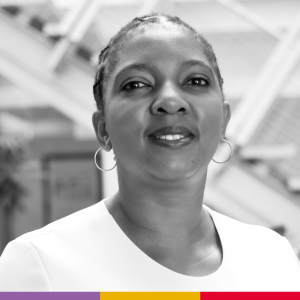
Tuesday Mar 31, 2020
Tuesday Mar 31, 2020
In conversation with Adv Karabo Ozah
The United Nations Convention on the Rights of the Child (UNCRC) is a legally-binding international agreement setting out the civil, political, economic, social and cultural rights of every child, regardless of their race, religion or abilities. The guiding principles of the Convention include non-discrimination; adherence to the best interests of the child; the right to life, survival and development; and the right to participate.
Upon commemorating 30 years of the existence of the UNCRC, and in conversation with Ms Karabo Ozah, the Director of the Centre for Child Law at the University of Pretoria, this episode explores and measures the impact of the UNCRC and its relevance in the African context. In this conversation, Karabo makes an important comparison between the UNCRC and the African Charter on the Rights and Welfare of the Child. She shows the link of cultural relativism in relation to the concept of children’s rights in the African setting.
This conversation was recorded on 27 November 2019.
Music: Inner Peace by Mike Chino https://soundcloud.com/mike-chino Creative Commons — Attribution-ShareAlike 3.0 Unported — CC BY-SA 3.0 http://creativecommons.org/licenses/b... Music promoted by Audio Library https://youtu.be/0nI6qJeqFcc
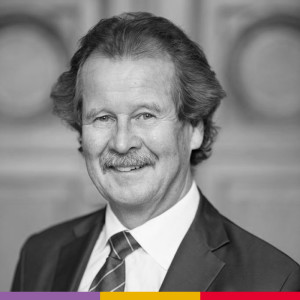
Tuesday Mar 03, 2020
Tuesday Mar 03, 2020
In conversation with Prof Manfred Nowak
For children, deprivation of liberty means depriving them of their childhood. Placing children in institutions and other facilities where they are, or may be, deprived of liberty is difficult to reconcile with the Convention on the Rights of the Child (CRC), which celebrated its 30th anniversary in 2019. The CRC clearly states that the deprivation of liberty of children shall be used only as a measure of last resort and for the shortest appropriate period of time. To address this situation, in December 2014 the United Nations General Assembly invited the United Nations Secretary-General to commission an in-depth Global Study on Children Deprived of Liberty. In October 2016, Professor Manfred Nowak was appointed as Independent Expert to lead the Global Study.
The Independent Expert, together with the South African Department of International Relations and Cooperation (DIRCO), the Centre for Human Rights, University of Pretoria and the Global Campus of Human Rights, hosted a one-day sub-regional launch of the Global Study. Key stakeholders from members of the Southern African Development Community (SADC), African Union representatives as well as the Indian Ocean Island States were invited to discuss and strategise the implementation of the Global Study. It is during this sub-regional launch that this conversation was had with Professor Manfred Nowak. He discusses the findings of the Global Study and provides recommendations on these findings.
This conversation was recorded on 9 December 2019.
Music: Inner Peace by Mike Chino https://soundcloud.com/mike-chino Creative Commons — Attribution-ShareAlike 3.0 Unported — CC BY-SA 3.0 http://creativecommons.org/licenses/b... Music promoted by Audio Library https://youtu.be/0nI6qJeqFcc
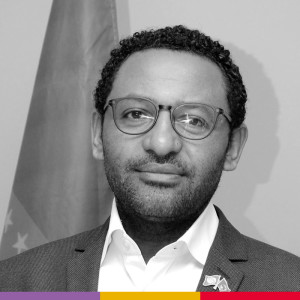
Tuesday Feb 18, 2020
Tuesday Feb 18, 2020
In conversation with Dr Solomon Dersso
In 2019, the Centre for Human Rights celebrated the 20th anniversary of its Master's programme in Human Rights and Democratisation in Africa (HRDA). The Centre hosted a number of HRDA alumni at the University of Pretoria in a series of events to highlight the programmme's past achievements and to investigate how the programme can be enhanced to respond better to human rights challenges on the continent.
The second season of Africa Rights Talk kicks off with an interview with an HRDA alumnus of the Centre and current Chairperson of the African Commission on Human and Peoples' Rights, Dr Solomon Dersso. He narrates his journey from the time he studied on the HRDA programme to the time he was appointed as the Chairperson of the African Commission. Dr Dersso describes and explains the nature of the work of the African Commission and gives an insight on his mandates and areas of priority for engagement during his tenure as Chairperson.
This conversation was recorded on 9 December 2019.
Music: Inner Peace by Mike Chino https://soundcloud.com/mike-chino Creative Commons — Attribution-ShareAlike 3.0 Unported — CC BY-SA 3.0 http://creativecommons.org/licenses/b... Music promoted by Audio Library https://youtu.be/0nI6qJeqFcc
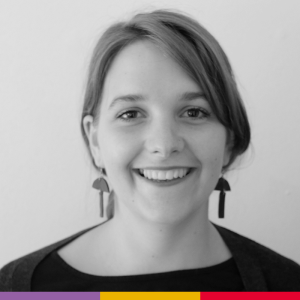
Tuesday Nov 12, 2019
S1 E13: Exploring issues affecting migrants in South Africa - Ms Abigail Dawson
Tuesday Nov 12, 2019
Tuesday Nov 12, 2019
In conversation with Ms Abigail Dawson
Throughout its history, Africa has experienced migratory movements that are both voluntary and forced and this have contributed to its contemporary demographic landscape. In many parts of the continent, communities bound together by languages, history and tradition are spread across two or three nation states, and movement is often not limited by political boundaries. Migration in Africa is a result of a number of factors, which include the need for improved socio-economic conditions through employment, environmental factors, as well as fleeing from political instability, conflict and civil strife.
The 2019 African Union theme speaks to forced displacement, which is a major issue confronting the African continent. More than a third of the world’s forcibly displaced people are in Africa: this include 6.3 million refugees and asylum-seekers, and 14.5 million internally displaced persons (IDPs). The Africa Union theme ‘Year of Refugees, Returnees and IDPs: Towards Durable Solutions to Forced Displacement in Africa’ urges leaders and civil society to act promptly to protect migrants. With the wave of xenophobic violence and other intolerances in many parts of the continent, the need to protect migrants has increasingly become important. In pursuit of protecting the rights of migrants, this conversation aims to addresses the challenge of xenophobia and to monitor and promote the daily experiences of migrants living in South Africa. The hope is to promote a culture that prevents discrimination of other people based on their nationality as well to enhance a culture of diversity.
In this episode, Abigail Dawson talks about the challenges that migrants face in South Africa. She is a qualified social worker and offers voluntary counselling for migrant women and children. She is the Communications and Media Officer of the Consortium for Refugees and Migrants in South Africa (CoRMSA) which is a national network of organisations working with asylum seekers, refugees and international migrants in South Africa. Its main objectives are the promotion and protection of the rights of asylum seekers, refugees and international migrants. CoRMSA operates at the national, regional and global level with strategic support to members at local and provincial levels.
This conversation was recorded on 21 October 2019.
Music: Inner Peace by Mike Chino https://soundcloud.com/mike-chino Creative Commons — Attribution-ShareAlike 3.0 Unported — CC BY-SA 3.0 http://creativecommons.org/licenses/b... Music promoted by Audio Library https://youtu.be/0nI6qJeqFcc
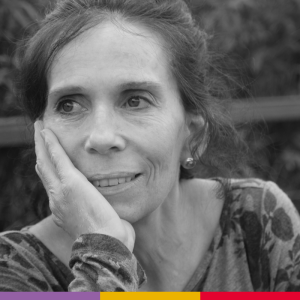
Tuesday Oct 29, 2019
S1 E12: Mental health as a human right - Dr Linda Blokland
Tuesday Oct 29, 2019
Tuesday Oct 29, 2019
In conversation with Dr Linda Blokland
October is Mental Health Awareness Month and a number of initiatives and campaigns were launched to raise awareness around issues of mental health. Good health is one of the most fundamental aspects that are crucial to our well-being, and transcends age, sex or socio-economic backgrounds. But health should be approached holistically - we can not look at health without looking at mental health. Yet government institutions and other stakeholders do not adequately address mental health issues in their policies.
In this episode, Dr Linda Blokland explores mental health and addresses the causes of stigma around mental health issues. She explains what mental health really means and advocates for access to adequate mental healthcare.
This conversation was recorded on 17 October 2019.
Music: Inner Peace by Mike Chino https://soundcloud.com/mike-chino Creative Commons — Attribution-ShareAlike 3.0 Unported — CC BY-SA 3.0 http://creativecommons.org/licenses/b... Music promoted by Audio Library https://youtu.be/0nI6qJeqFcc
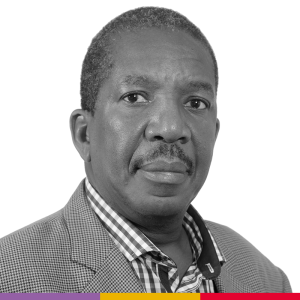
Tuesday Oct 15, 2019
S1 E11: What is Africanness? - Prof Charles Ngwena
Tuesday Oct 15, 2019
Tuesday Oct 15, 2019
In conversation with Prof Charles Ngwena
Professor Charles Ngwena is a renowned expert on human rights law at the Centre for Human Rights, University of Pretoria. In this episode, Adebayo Okeowo talks to Prof Ngwena about his book What is Africanness? Contesting nativism in race, culture and sexualities, a visionary philosophical inquiry into the contentious issue of African identity politics. Prof Ngwena speaks about how the book explores the historical and cultural contexts in which Africans are perceived and how they perceive themselves in terms of race, culture and sexuality. He stresses the fact that identity is a concept that is not static but fluid and always changing. Prof Ngwena argues that 'Africanness' is a heterogeneous concept that accommodates difference and shows respect for diversity.
About What is Africanness? Contesting nativism in race, culture and sexualities
Stuart Hall, the cultural theorist and other deconstructive theorists have given us a rich theoretical template for unpacking identities as complex formations of representation. Even when we accept, as a point of departure, that identities are real and that it is not their falsity or genuineness that matters, if problematised, identities cease to be neat, singular, self-standing and static packages that speak to an integral and unified identity. The identities we take for granted, especially those that we ourselves proclaim to mark our exclusive identitarian spheres and which we invest with closures of solidarity and allegiance, are better understood as specific enunciations.
Identities are always situated and always in the making. They are neither fixed nor closed but always lodged in historical contingency. In the end, identities signify how we have been positioned by, or how we position ourselves within, discourse. And so it is with African identity.
Focusing on race, culture and sexuality, What is Africanness develops an interpretive method or hermeneutics for deconstructing African identity in ways that part company with discourses of reductive sameness – which I call ‘nativism – which have dominated the imagination of African identity not just during the eras of slavery, colonialism and apartheid but also in the aftermath of these historical events. The hermeneutics that What is Africanness develops are intended as transformative theoretical tools for dismantling hierarchical systems of thought and unmasking gaps and contradictions in the imagination of African identity. Ultimately, the book develops a roadmap for the recognition of heterogeneous African identity in a plural universe. It is an identity that is constantly unfolding and speaks to a multiplicity of ancestries together with their complexities, fluidity and difference. The book’s arguments should not be misunderstood as asking Africans to renounce any claim to an authentic African identity. Rather, the arguments call for authenticity to be reimagined in ways that are transformative as to capture not only our past but also our present and future Africanness.
What is Africanness? Contesting nativism in race, culture and sexualities by Charles Ngwena (2018)
Published by the Pretoria University Law Press (PULP)
ISBN: 978-1-920538-82-8
Pages: 306
This conversation was recorded on 19 August 2019.
Music: Inner Peace by Mike Chino https://soundcloud.com/mike-chino Creative Commons — Attribution-ShareAlike 3.0 Unported — CC BY-SA 3.0 http://creativecommons.org/licenses/b... Music promoted by Audio Library https://youtu.be/0nI6qJeqFcc
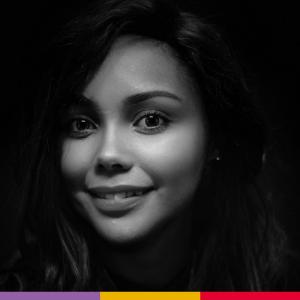
Tuesday Jul 16, 2019
Tuesday Jul 16, 2019
In conversation with Ms Saoyo Tabitha Griffith
The issue of forced sterilisation is a little-known matter as women are generally reluctant to discuss their experience. Stemming from the social stigma attached to women unable to have children, many women suffer in silence. Ms Saoyo Tabitha Griffith (Deputy Executive Director, KELIN) sheds light on the challenges and continued battle against the ongoing forced sterilisations in Kenya. The issue of informed consent and the demographic of women who are disproportionately affected are explored.
In terms of who can consent, what type of consent is required, and the lack of emergency surrounding the procedure raise significant questions over the current practice of medical professionals. Despite the discussion focusing on Kenyan examples, the practice is wide spread, including in Lesotho, Namibia, South Africa and Uganda.
While reproductive rights tend to focus on women who want children, the Maputo Protocol and accompanying protections cover sexual and reproductive rights and speak to all women, both those who want and do not want children. The importance of such rights is explained through the associated societal benefits that accompany the empowerment of women, highlighting that the time for investing in women is now. The conversation ends with a roundup of some basic sexual and reproductive rights every women (and man) should be aware before seeking medical assistance.
This conversation was recorded on 27 March 2019.
Music: Inner Peace by Mike Chino https://soundcloud.com/mike-chino Creative Commons — Attribution-ShareAlike 3.0 Unported — CC BY-SA 3.0 http://creativecommons.org/licenses/b... Music promoted by Audio Library https://youtu.be/0nI6qJeqFcc
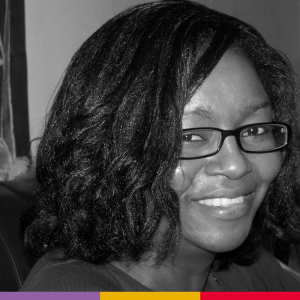
Tuesday Jul 02, 2019
Tuesday Jul 02, 2019
In conversation with Prof Fareda Banda
Experience has shown the Convention on the Elimination of Discrimination Against Women (CEDAW) to be insufficient in addressing certain challenges faced by women across the African continent. Through the discussion with Prof Fareda Banda (SOAS, University of London) the background to the Maputo Protocol (Protocol to the African Charter on Human and Peoples’ Rights on the Rights of Women in Africa) and distinctions between it and CEDAW are explored.
Through building on the international framework, the Maputo Protocol reflects developments in the areas of: intersectionality; the specificities of the African women; decoupling women’s rights from the husband; and in reproductive rights, including access to safe abortions. We discuss how cultural practices can be used as justification for discrimination, whereby Prof Banda explains the cultural recognition within the Protocol and the requirement for women’s participation in their construction. She highlights the positive cultural practices of the continent and the importance of placing them within the treaty framework.
We then move to exploring family rights and the protections the Maputo Protocol has ushered in. Prof Banda delves into the provisions on marriage and inheritance and how the new African constitutions are removing discriminatory laws and no longer ringfence customary law from scrutiny. Whether the developments have occurred solely due to the laws in place is considered. Rounding off the discussion, the importance of knowing the African treaty is stressed to facilitate its broader use and in taking ownership of it.
This conversation was recorded on 26 March 2019.
Music: Inner Peace by Mike Chino https://soundcloud.com/mike-chinoCreative Commons — Attribution-ShareAlike 3.0 Unported — CC BY-SA 3.0 http://creativecommons.org/licenses/b...Music promoted by Audio Library https://youtu.be/0nI6qJeqFcc

